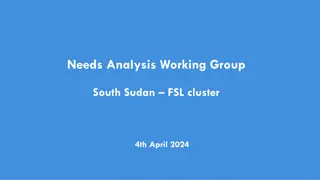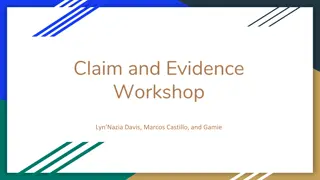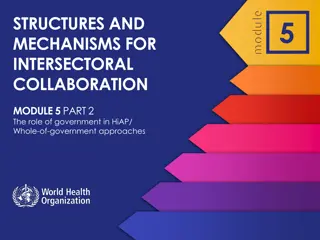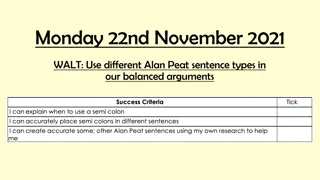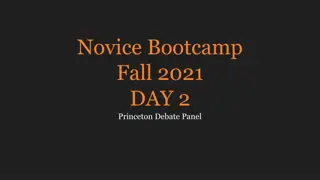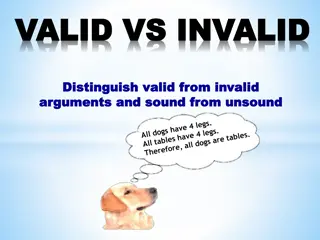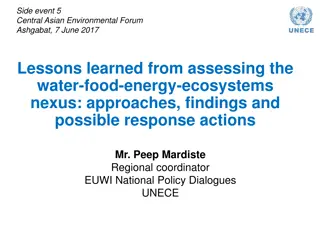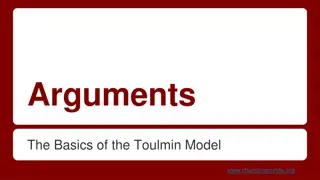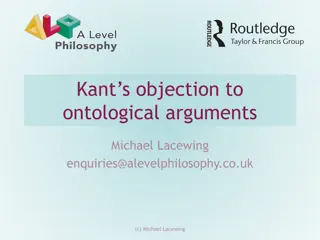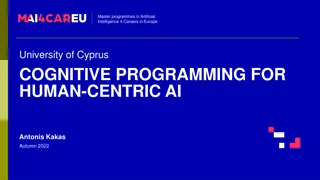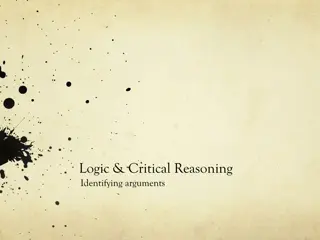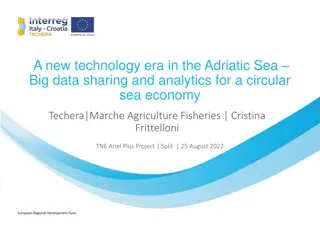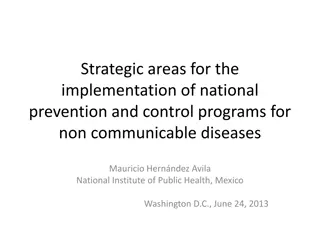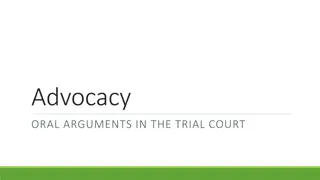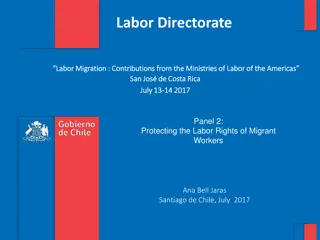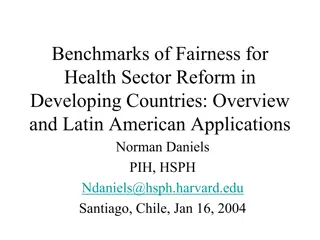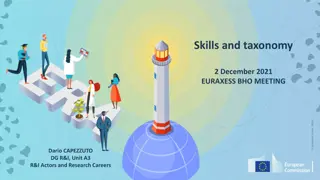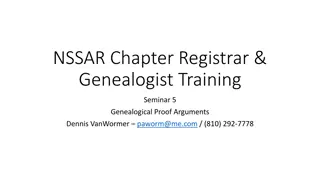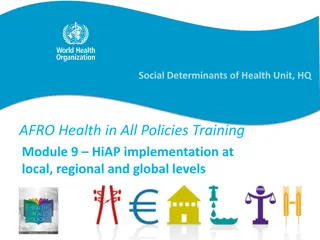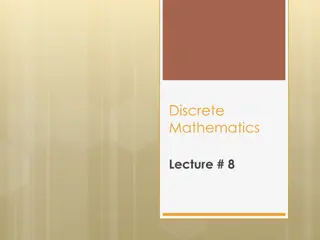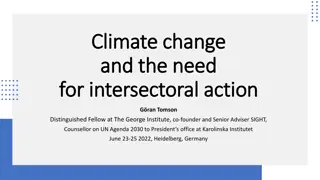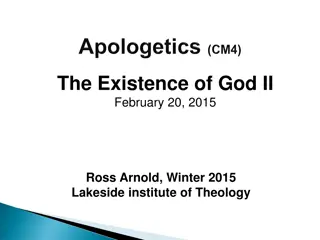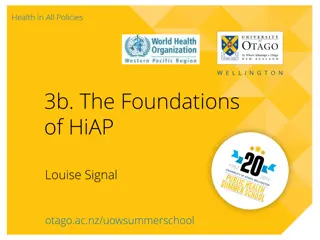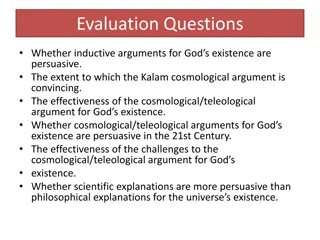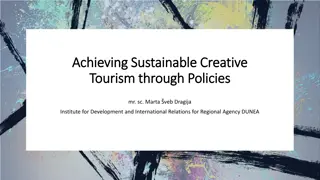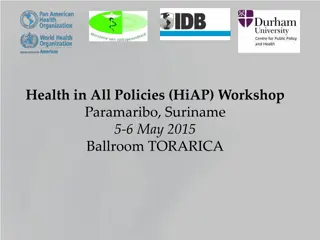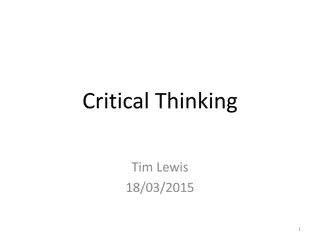SWAZILAND
The problem of diarrhoea in Swaziland, especially among children, and the inadequate sanitary facilities and resources in informal settlements. It emphasizes the importance of safe drinking water and argues for a change in current policies to improve sanitation. Key recommendations for action and ap
4 views • 10 slides
Government Management System Based on Science and Innovation in Cuba
The Cuban Revolution under Fidel Castro emphasized the role of knowledge, science, and technology in national development. With the Constitution of the Republic in 2019, science, technology, and innovation (STI) are recognized as crucial for prosperity, sovereignty, and independence. Amid the COVID-
1 views • 18 slides
Needs Analysis Working Group for South Sudan FSL Cluster - 4th April 2024
The Needs Analysis Working Group (NAWG) in South Sudan is focused on conducting evidence-based analysis of critical humanitarian needs to support decision-making for intersectoral emergency response. The group monitors needs severity, provides updates to the ICCG, and aims to prioritize the most vul
0 views • 26 slides
Mastering the Toulmin Method for Constructing Persuasive Arguments
Learn how to effectively structure arguments using the Toulmin Method, which consists of Claim, Data, Warrant, Backing, Counterclaim, and Rebuttal elements. Explore reasoning and logic concepts, differentiate between inductive and deductive reasoning, and understand how to construct valid arguments
0 views • 30 slides
Government Structures and Mechanisms for Intersectoral Collaboration
Explore the role of government in Health in All Policies (HiAP) and whole-of-government approaches, including the varying implementation of HiAP in different contexts. Learn about common structures such as Cabinet committees, Parliamentary committees, Interdepartmental committees, and more, used for
0 views • 12 slides
Understanding the Structure of Balanced Arguments
Explore the concept of using the third person in writing balanced arguments to maintain objectivity and structure. Learn about third person pronouns and the importance of being unbiased in your writing. Understand the significance of structuring your arguments and maintaining a clear order for effec
0 views • 11 slides
Mastering Alan Peat's Balanced Arguments with Different Sentence Types
Explore the use of various Alan Peat sentence types in crafting balanced arguments, focusing on incorporating semi-colons effectively. Engage in interactive activities and practice sessions to enhance your skills in creating compelling arguments. Dive into examples and exercises to refine your under
1 views • 12 slides
Mastering Debate: Essential Strategies and Techniques
Learn key concepts like argument structure, points of clarification, and how to make compelling arguments in a debate setting. Discover the importance of warrants, impacts, and implications in formulating strong arguments. Explore tips on coming up with effective arguments and understanding differen
0 views • 47 slides
Mastering Final Focus in Debates
Final Focus, a crucial 2-minute speech at the end of a debate, serves as your last chance to persuade the judge of your victory. It involves comparing key voters and emphasizing the impact of your arguments. Weighing key voters is essential, with a focus on demonstrating why the scale tips in your f
1 views • 4 slides
Child Death Review Project in Western Cape
The Child Death Review Project presented by Prof. Shanaaz Mathews focuses on child murders in the Western Cape region, aiming to address the high child homicide rates and improve coordination between health, police, and social services to prevent further child deaths. By developing intersectoral res
0 views • 20 slides
Understanding Reasonable Arguments vs. Pseudo-Arguments
The provided content focuses on distinguishing between reasonable arguments and pseudo-arguments through thought-provoking questions such as the ethical treatment of animals, city subsidies for sports venues, and subjective opinions on aesthetics. It also explains the structure of an argument, highl
0 views • 18 slides
Understanding Valid and Invalid Arguments in Logic
In logic, arguments consist of premises supporting a conclusion, with deductive arguments claiming logical necessity. Valid arguments have premises implying the conclusion, making them deductively valid. For example, if all actors are robots and Tom Cruise is an actor, then logically Tom Cruise must
0 views • 25 slides
Lessons from Water-Food-Energy-Ecosystem Nexus at Central Asian Environmental Forum
Explore insights from assessing the water-food-energy-ecosystems nexus discussed at the Central Asian Environmental Forum. Mr. Peep Mardiste shares approaches, findings, and potential response actions. The UNECE Water Convention's framework, tools, and methodologies for assessing nexus relationships
0 views • 13 slides
An Examination of Ontological Arguments for God's Necessary Existence
Various ontological arguments, such as Malcolm's and Anselm's, propose that the existence of God is logically necessary, grounded in the concept of God as the greatest possible being. These arguments challenge the coherence of the concept of God and counter objections, like Kant's claim that existen
2 views • 10 slides
Understanding the Toulmin Model for Effective Argumentation
The Toulmin Model provides a structured approach to crafting and evaluating arguments, consisting of key components like claims, grounds/data, and warrants. It emphasizes the importance of using evidence and reasoning to support claims effectively. By understanding this model, one can enhance the pe
0 views • 13 slides
Kant's Critique of Ontological Arguments
An exploration of Kant's objection to ontological arguments, examining the flaws in the reasoning of Anselm and Descartes. Kant argues that existence is not a predicate and does not enhance the concept of a being. Therefore, ontological arguments cannot prove the existence of God solely through conc
0 views • 7 slides
Understanding Argumentation and Realization in AI Master Programmes
Exploring the concept of argumentation and its realization in artificial intelligence master programmes, focusing on the construction, evaluation, and implementation of arguments through cognitive programming. The framework involves structured argumentation, conflict relations, and strength/preferen
1 views • 31 slides
Understanding Logic and Critical Reasoning: Identifying Arguments
In the study of logic and critical reasoning, identifying arguments is a fundamental task. Arguments consist of premises supporting a conclusion, and they can be identified by specific indicators and techniques. Understanding argument structure and types of support, such as deductive and inductive,
2 views • 15 slides
Techera Project Overview: Advancing Blue Economy in the Adriatic Sea through Big Data Sharing
Techera, a cluster project in the Adriatic Sea, aims to promote emerging technologies in the blue economy sector by capitalizing on previous projects like SUSHIDROP and PRIZEFISH. With a focus on data-driven solutions and innovation, Techera aims to enhance competitiveness and sustainability in the
0 views • 13 slides
Implementing Strategic Areas for Non-Communicable Disease Prevention
Implementation of national prevention and control programs for non-communicable diseases is crucial for sustainable healthcare systems. Collaborating with multidisciplinary groups and shifting advocacy paradigms towards human rights and social determinants of health are essential. A transformation i
1 views • 20 slides
Guide to Oral Arguments in Trial Court
Learn how to conduct oral arguments in a trial court, including the steps for both the movant and respondent, strategies for making strong arguments, and tips for responding effectively. This comprehensive guide covers the dos and don'ts of oral arguments, emphasizing the importance of preparation,
0 views • 9 slides
Supporters of Slavery in the 19th Century: Legal, Religious, and Economic Arguments
In the 19th century, defenders of slavery utilized legal arguments by denying citizenship rights to blacks, religious arguments by justifying ownership and guidance through biblical references, and economic arguments by comparing treatment of slaves in the South to conditions of workers in the North
0 views • 4 slides
Understanding Command-line Arguments and Errors
Learn how to utilize command-line arguments in Python scripts to enhance flexibility and parametrize functions for various inputs. Explore ways to access and utilize command-line arguments effectively, while handling errors gracefully.
0 views • 30 slides
Promoting Labor Rights of Migrant Workers in Chile
Chile has seen a significant influx of migrant workers in recent years, prompting the government to develop a comprehensive migration policy. The Ministry of Labor plays a key role in ensuring the protection and integration of migrant workers, emphasizing equal rights and opportunities for both migr
0 views • 12 slides
Analyzing Arguments in English Debates: A Critical Approach
Explore and critique various arguments presented in English debates, including topics like dietary recommendations, digestion issues with Japanese rice, and driving skills in different weather conditions. Learn how to evaluate evidence, causality, and persuasiveness in arguments to develop critical
0 views • 19 slides
Mastering Academic Writing Moves: The Art of Summarizing
In academic writing, mastering the art of summarizing is crucial for persuasive arguments. By engaging in dialogue with others and summarizing their arguments, writers can strengthen their position. It is important to strike a balance between the original author's ideas and your own, emphasizing asp
0 views • 15 slides
An Overview of Debate: Propositions, Teams, and Formats
Debate is a regulated discussion between two matched sides discussing a proposition, with the affirmative arguing for change and the negative defending the status quo. The standard debate format involves constructive arguments followed by rebuttals from both sides. The roles in a debate include the
0 views • 47 slides
Benchmarks of Fairness in Health Sector Reform: Overview and Applications
Overview of benchmarks for fairness in health sector reform, tracing historical development, adapted benchmarks, connections to social justice, structure of benchmarks, and comparison with the WHO framework. Covers key aspects such as intersectoral public health, financial barriers, equity in access
0 views • 41 slides
European Framework for Research Careers and Skills Taxonomies
The European Framework for Research Careers aims to synergize with the European Education Area and employment policies, recognizing and enhancing talent in research. It emphasizes brain circulation, intersectoral mobility, and training development. The initiative includes developing a Competence Fra
0 views • 9 slides
Genealogical Proof Arguments and SAR Standard of Proof
This detailed content covers the definitions and components of genealogical proof arguments, proof summaries, and the SAR standard of proof. It explains the importance of evidence quality, source citations, and analysis in establishing acceptable genealogical conclusions for SAR membership applicati
0 views • 22 slides
Exploring HiAP Implementation for Health Equity
This content explores the implementation of Health in All Policies (HiAP) at local, regional, and global levels, discussing challenges, examples, key results, and conceptual frameworks towards achieving health equity. Various studies and training sessions conducted by WHO and PAHO in collaboration w
0 views • 27 slides
Understanding Valid and Invalid Arguments in Discrete Mathematics
Concepts of valid and invalid arguments in discrete mathematics are explored through examples. Learn how to determine the validity of arguments based on premises and conclusions. Practice using truth tables to evaluate argument forms. Enhance your logical reasoning skills in Discrete Mathematics.
0 views • 22 slides
National Importance of Consuming Whole Grain Products in Slovenia's Health Programme
Dr. Marjeta Recek from the Ministry of Health emphasizes the significance of consuming whole grain products in Slovenia's National Programme on Nutrition and Health. The program aims to empower individuals to make healthy choices, improve health, and enhance quality of life by promoting nutrition, s
0 views • 20 slides
Addressing Climate Change Through Intersectoral Action: Insights and Recommendations
Climate change necessitates intersectoral action, requiring collaborative efforts from various sectors to protect both people and the planet. To overcome barriers and promote facilitators of intersectoral action, key strategies include enhancing political support, fostering executive leadership, and
0 views • 12 slides
Philosophical Apologetics: Arguments for the Existence of God
Philosophical apologetics presents various arguments for the existence of God, including the ontological, cosmological, teleological, moral, transcendental, and presuppositional arguments. These arguments cover diverse aspects such as change, causality, design, contingency, miracles, consciousness,
0 views • 10 slides
Fundamentals of Health in All Policies Approach
Health in All Policies (HiAP) is an approach that considers health implications in decision-making to enhance population health and equity. It builds on historical foundations of public health, emphasizing the importance of social determinants and intersectoral collaborations. Key documents like the
0 views • 19 slides
Evaluating Arguments for God's Existence in the 21st Century
Exploring the persuasiveness of inductive arguments for God's existence, assessing the Kalam cosmological argument, and evaluating the effectiveness of cosmological/teleological arguments. Delving into whether scientific explanations surpass philosophical ones, the strengths and weaknesses of these
0 views • 16 slides
Sustainable Creative Tourism Policies for Regional Development
Engage in sustainable creative tourism policies to support cultural heritage preservation, boost sustainable tourism development, and enhance intersectoral cooperation in the ADRION region. Recommendations include legal frameworks for CCIs, decentralization, and diversification of the economy.
0 views • 14 slides
Health in All Policies (HiAP) Workshop in Paramaribo, Suriname - May 2015
Join the Health in All Policies (HiAP) Workshop in Paramaribo, Suriname, to explore the role of government in promoting intersectoral collaboration for better health outcomes. Learn about key terms, barriers, conducive conditions, and practical examples related to HiAP implementation. Gain insights
0 views • 35 slides
Understanding Critical Thinking, Hypotheses, and Arguments
Explore the concepts of critical thinking, hypotheses, and arguments in this informative content. Learn about the definition of hypotheses, the nature of arguments, and syllogisms. Delve into the world of logical reasoning and the foundations of thought processes.
0 views • 32 slides


